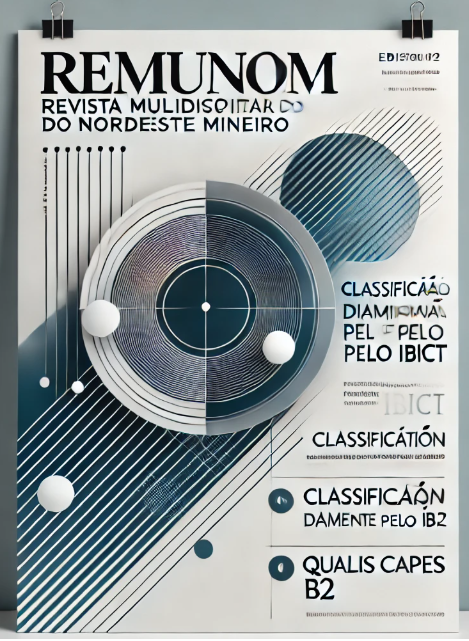A CHILDREN'S LITERATURE AS A BASIS FOR THE FORMATION OF THE READING SUBJECT: A PEDAGOGICAL AND SOCIOCULTURAL ANALYSIS
DOI:
https://doi.org/10.61164/rmnm.v13i1.4211Abstract
Abstract
Children's literature is an essential pedagogical tool for the educational and social development of children, contributing to the formation of critical and reflective readers. Their presence at school helps to improve reading, writing, and speaking skills, as well as promoting the interpretation of the world and the construction of values. By inserting children into narrative universes, literature allows them to recognize themselves in stories, stimulate their imagination and expand their perception of reality. Historically, children's literature has evolved from narratives without a pedagogical focus to a resource that shapes behaviors and educates. In Brazil, its development was late, initially aimed at transmitting moral values, and only later gained an educational character. Today, it is understood as a central element in the formation of reading subjects and conscious citizens. The effective application of children's literature faces challenges, such as inadequate teacher training, lack of pedagogical resources and school structure. These problems make it difficult to fully explore the stories and their multiple languages. However, by integrating literature into everyday school life, respecting children's experiences, it is possible to humanize and enrich learning. In addition to books, resources such as songs, songs and games expand pedagogical possibilities, especially in different sociocultural contexts, such as in the state of Amazonas. Children's literature, when well applied, transcends traditional teaching, transforming itself into an instrument of integral education. It not only teaches literacy, but also broadens horizons, building bridges between learning and social experience. Therefore, to fully take advantage of its potential, it is necessary to prepare mediators and create pedagogical materials that value narratives as tools for learning and social transformation, consolidating the importance of literature from the early school years.
Keywords: Education; Children's literature; Formation of the reader.
Downloads
References
BARROS, P. R. P. D. B. A contribuição da literatura infantil no processo de aquisição de leitura. 2013. 54f. Trabalho de Conclusão de Curso (Graduação em Pedagogia) – Centro Universitário Católico Salesiano Auxilium, São Paulo, 2013.
BETTELHEIM, Bruno. A psicanálise dos contos de fadas. Rio de Janeiro: Paz e Terra, 1980.
CADEMARTORI, Lígia. O que é literatura infantil. 2. ed. Tatuapé: Brasiliense, 2010.
COELHO, N. N. Literatura infantil: teoria, análise, didática. São Paulo: Moderna, 2000.
FREIRE, paulo. Pedagogia do Oprimido. 17 ed. Paz e Terra. Rio de Janeiro, 1987.
LAJOLO, Marisa; ZILBERMAN, Regina. Literatura infantil brasileira: histórias & histórias. (Série fundamentos). 6. ed. São Paulo: Ática, 2003.
MACHADO, Ana Maria. Balaio, Livro e Leituras. 1 ed. Nova Fronteira. Rio de Janeiro, 2007.
Downloads
Published
Issue
Section
License
Copyright (c) 2025 Revista Multidisciplinar do Nordeste Mineiro

This work is licensed under a Creative Commons Attribution-NonCommercial-ShareAlike 4.0 International License.
Authors who publish in this journal agree to the following terms:
Authors retain copyright and grant the journal the right of first publication, with the work simultaneously licensed under the Creative Commons Attribution License, which permits the sharing of the work with proper acknowledgment of authorship and initial publication in this journal;
Authors are authorized to enter into separate, additional agreements for the non-exclusive distribution of the version of the work published in this journal (e.g., posting in an institutional repository or publishing it as a book chapter), provided that authorship and initial publication in this journal are properly acknowledged, and that the work is adapted to the template of the respective repository;
Authors are permitted and encouraged to post and distribute their work online (e.g., in institutional repositories or on their personal websites) at any point before or during the editorial process, as this may lead to productive exchanges and increase the impact and citation of the published work (see The Effect of Open Access);
Authors are responsible for correctly providing their personal information, including name, keywords, abstracts, and other relevant data, thereby defining how they wish to be cited. The journal’s editorial board is not responsible for any errors or inconsistencies in these records.
PRIVACY POLICY
The names and email addresses provided to this journal will be used exclusively for the purposes of this publication and will not be made available for any other purpose or to third parties.
Note: All content of the work is the sole responsibility of the author and the advisor.



